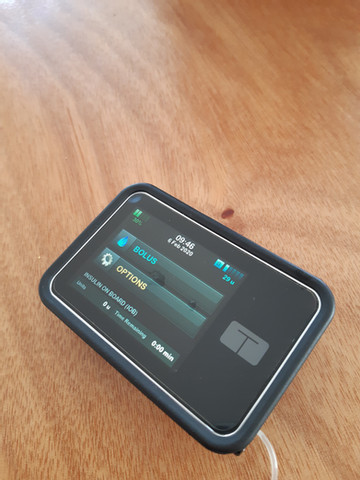When ‘she’ll be right’ turns to trouble
Unfortunately sometimes it’s only when things go wrong that we realise certain behaviours or habits are jeopardising our health. Often they’re completely unintentional. If this happens it’s helpful to ask yourself, what can I learn from this?

At times like this you find yourself in Super-Mum mode. Any thoughts about your unclean teeth, crazy bed hair and exhaustion from continuous broken sleep are forgotten. Your priority is your precious tamaiti (child).
We arrived at Accident and Emergency prepared for the long wait to see a doctor (a reality of the stretched NZ Health System).
It then dawns on me that amongst the bed, bath, try to get as much sleep before Felix starts coughing chaos I hadn’t changed the insulin in my pump or charged the battery. I knew it needed to be done, but figured I had enough ‘juice’ to get me through to the morning. I could sort it then.
Unfortunately things hadn’t gone to plan. Rather than focusing solely on being there for Mr 3, I found myself calculating how many hours of insulin I had left, how I could charge my pump battery and whether I had any low supplies at the bottom of my bag. To make matters worse I’d left my phone at home.
At 4.30am the husband and Miss 9 arrived. Unable to contact me and therefore know what was going on, was hard for them too. Having someone else there instantly relieved the pressure I was feeling. If diabetes did take over I could tap-out and address the issue knowing the kids would be okay.

I’d avoided a diabetes disaster this time, but as I climbed into bed I knew I had to introduce strategies to ensure I remained healthy despite the demands of ‘life’
Prioritising your diabetes will help you feel in control and able to focus on and enjoy the important things. Creating habits to help you complete the key diabetes tasks to thrive, such as changing your insulin, charging batteries, restocking hypo supplies, test strips and lancets will bring you one step closer to putting your diabetes on auto-pilot.
“We are what we repeatedly do. Excellence, then, is not an act, but a habit.” – Aristotle.
-
- Change your insulin every three days.
Be staunch with this. No excuses. When your pump reminds you to change your insulin, just do it! MAKE IT A PRIORITY. Even if you know you can get at least another 12 hours from the remaining insulin, just do it. Five minutes now means you can just get on with things. It also means you’re less likely to get caught short or have to leave somewhere early. (I’ve definitely been there). - Carry extra insulin with you Knowing you have back-up insulin if things don’t go to plan can help you feel confident navigating whatever comes your way. And if you need to use the insulin, make sure you restock your supply.
- Charge your insulin pump at every opportunity
If it’s not on you, make sure it’s charging. Having a shower – charge it. Taking it off to exercise – charge it. Disconnecting your pump to have sex – charge it!
If your pump isn’t chargeable, carrying spare batteries will do the trick. It’s also useful to carry an extra set for your blood glucose meter too. - Order a new prescription well before you need it Rather than ordering a prescription for more insulin, test strips etc when you’re down to your last vial, get into the habit of doing it earlier. If there’s a hold up at the chemist or you forget you’ll still have enough supplies to get you through.
- Make sure your Hypo supplies are well stocked Despite doing our very best to avoid low blood sugars, having hypo supplies readily available saves our life, allows us to correct, get back in range quickly and get on with our day.Have a few essentials with you always (a juice box, mentos, muesli bar etc.) and if you use anything from your stash replace it.I’ve lost count of how many times I’ve forgotten to replace what I’ve used and found myself low in the middle of the night having to use slow-acting glucose alternatives to get my blood sugars up. Not ideal and definitely means I over correct and spike hours later.
- Change your insulin every three days.
What other tips would you include?
These strategies are simple and will drastically improve the confidence you have managing your diabetes, allowing you to focus your time and energy on what’s truly important to you. You deserve it.
